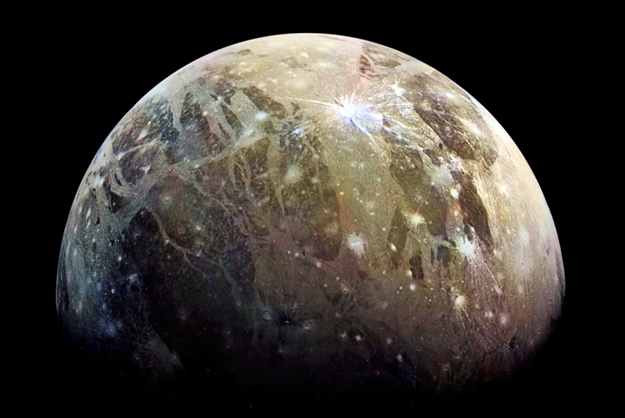In a nutshell, chorus waves are a form of electromagnetic radiation that can be converted to sound. After the conversion takes place we can hear the chorus waves around Earth as chirping birds. They also produce amazing auroras that can be admired at the poles of your planet. Chorus waves have been identified on Earth, Saturn, Jupiter and Jupiter’s moons Europa and Ganymede. Astronomers were surprised to find out recently that the chorus waves around Ganymede were in a fact a million times more intense than those around Jupiter.
According to a recently published study, around Europa and Ganymede, which have both induced and internal magnetic fields the power of chorus waves is significantly increased. Based on measurements, values of average wave activity on Ganymede are up to six orders of magnitude. By comparison, the chorus waves detected near Earth are way tamer than those found around Jupiter. It was also observed that the chorus waves are 100 times more intense around Europa, which is still a high number when compared to Jupiter and Earth.
Chorus waves a are a subtype of plasma waves, occurring at very low frequencies. They cause the auroras we can observe on Earth and may destroy satellites by emitting high-power electrons. It is theorized that those near Ganymede and Europa are so powerful because both moons are inside Jupiter’s overwhelming magnetic field, which may in fact amplify the waves. It is estimated that Jupiter’s magnetic field is 20,000 times more intense than Earth’s magnetic field. Ganymede has its own magnetic field and particles caught between the two fields may accelerate to incredible speeds, producing very fast electrons.
The new data found by scientists may help us further explore planets which are outside our solar system and facilitate the detection of magnetic fields around exoplanets. It remains to be seen how useful the research will prove out to be in the future.
As our second lead editor, Anna C. Mackinno provides guidance on the stories Great Lakes Ledger reporters cover. She has been instrumental in making sure the content on the site is clear and accurate for our readers. If you see a particularly clever title, you can likely thank Anna. Anna received a BA and and MA from Fordham University.

